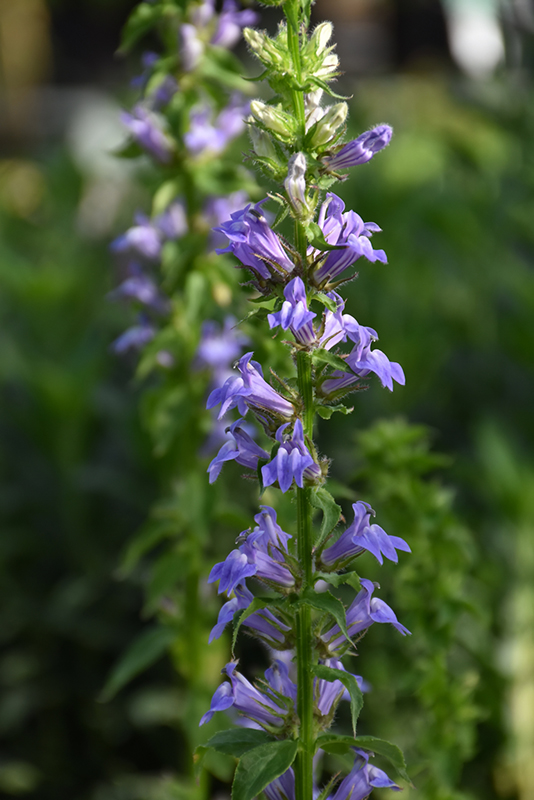Great Blue Lobelia
Lobelia siphilitica 'Great Blue'
Plant Height: 24 inches
Flower Height: 3 feet
Spacing: 16 inches
Sunlight:
![]()
Hardiness Zone: 4
Description:
A wonderful upright selection featuring tall, long-lasting spikes of bright blue flowers, rising above finely toothed foliage; nectar filled blooms attract pollinators during the summer; low maintenance and easy to grow, ideal for borders and containers
Ornamental Features
Great Blue Lobelia features showy spikes of blue tubular flowers rising above the foliage from early to mid summer. The flowers are excellent for cutting. Its pointy leaves remain green in color throughout the season.
Landscape Attributes
Great Blue Lobelia is an herbaceous perennial with an upright spreading habit of growth. Its medium texture blends into the garden, but can always be balanced by a couple of finer or coarser plants for an effective composition.
This is a relatively low maintenance plant, and is best cleaned up in early spring before it resumes active growth for the season. It is a good choice for attracting bees, butterflies and hummingbirds to your yard. It has no significant negative characteristics.
Great Blue Lobelia is recommended for the following landscape applications;
- Mass Planting
- General Garden Use
Planting & Growing
Great Blue Lobelia will grow to be about 24 inches tall at maturity extending to 3 feet tall with the flowers, with a spread of 18 inches. When grown in masses or used as a bedding plant, individual plants should be spaced approximately 16 inches apart. It grows at a fast rate, and under ideal conditions can be expected to live for approximately 5 years. As an herbaceous perennial, this plant will usually die back to the crown each winter, and will regrow from the base each spring. Be careful not to disturb the crown in late winter when it may not be readily seen!
This plant should be grown in a location with partial shade. Keep it away from hot, dry locations that receive direct afternoon sun or which get reflected sunlight, such as against the south side of a white wall. It prefers to grow in moist to wet soil, and will even tolerate some standing water. It may require supplemental watering during periods of drought or extended heat. This plant does not require much in the way of fertilizing once established. It is not particular as to soil pH, but grows best in rich soils. It is somewhat tolerant of urban pollution. This is a selection of a native North American species, and parts of it are known to be toxic to humans and animals, so care should be exercised in planting it around children and pets. It can be propagated by division; however, as a cultivated variety, be aware that it may be subject to certain restrictions or prohibitions on propagation.

